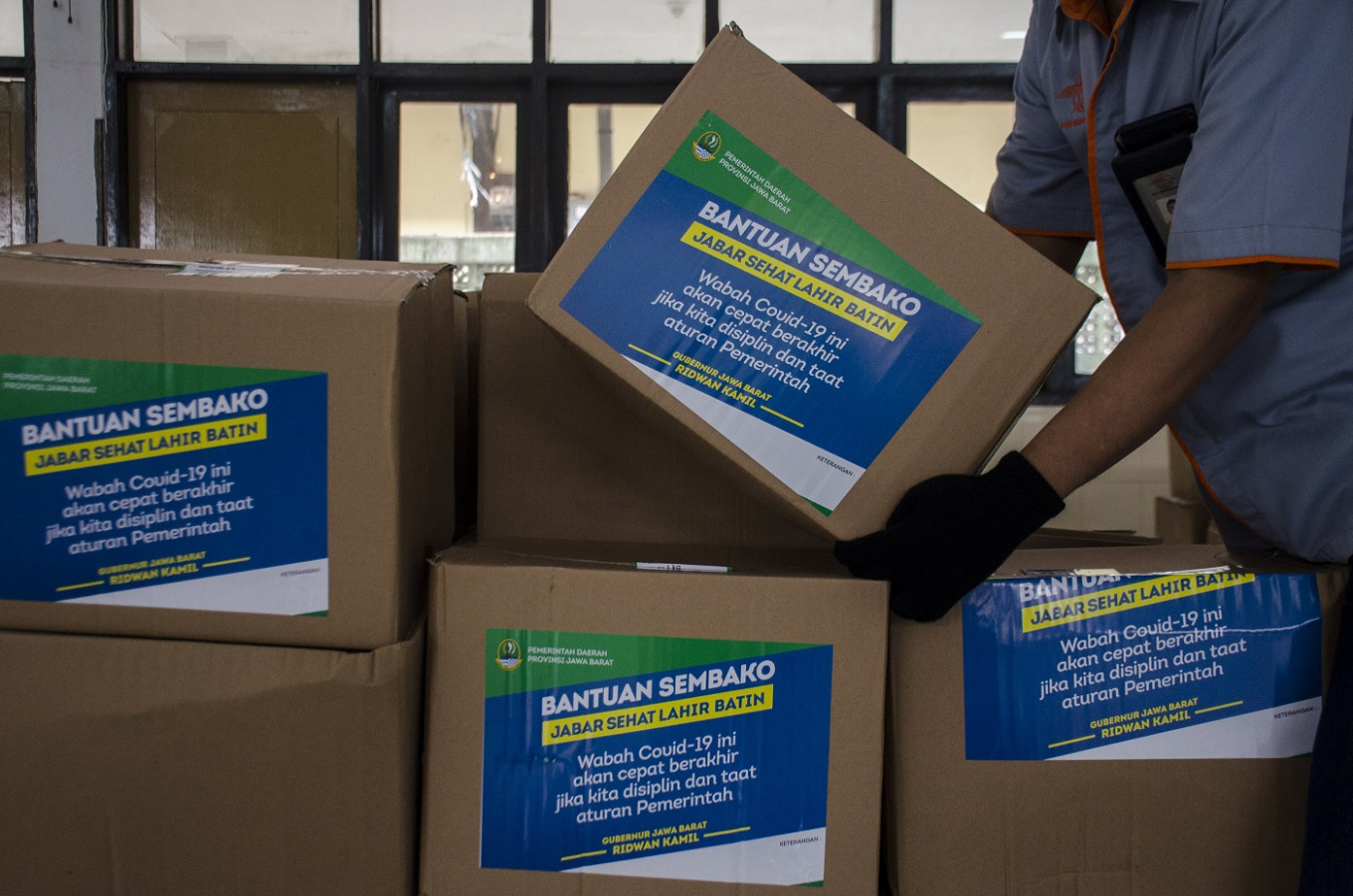Popular Reads
Top Results
Can't find what you're looking for?
View all search resultsPopular Reads
Top Results
Can't find what you're looking for?
View all search results'Not our responsibility': Minister fends off criticism of COVID-19 social aid distribution
The social affairs minister said data discrepancies in social assistance distribution during the pandemic were not the central administration’s responsibility.
Change text size
Gift Premium Articles
to Anyone
Social Affairs Minister Juliari Batubara has responded to mounting criticism surrounding the delivery of aid, saying the data discrepancies in social assistance distribution during the pandemic are not the central administration’s responsibility.
In a virtual meeting with the House of Representatives Commission VIII overseeing social affairs on Wednesday, lawmakers asked the minister about issues surrounding aid distribution
Previously, President Joko “Jokowi” Widodo had ordered his administration to maintain transparency in the distribution of social assistance in response to the COVID-19 outbreak, stressing that the public should know the details about those who are eligible to receive the aid and what type of aid is being distributed.
Nevertheless, Juliari said, “About whether prospective beneficiaries are eligible or ineligible, that is not our responsibility. Regional administrations understand this better."
He added that in the current “very abnormal” conditions, the government couldn't afford the “luxury” of doing data verification and revalidation.
Read also: In major policy shift, Jokowi orders transparency in pandemic fight
"Therefore, like it or not, we are almost 100 percent relying on data sent by the regions,” the ruling Indonesian Democratic Party of Struggle (PDI-P) politician said.
Juliari went on to say that rather than verifying and revalidating data, the government was better off distributing the aid quickly.
"I would rather be quick than correct [...] Just pick one, [either] be quick or be precise. I think it's impossible to achieve both. We are not a country with sophisticated data infrastructure," he said, adding that the government also lacked human resources working for the entire country’s data.
Therefore, he hoped the House of Representatives could help the government by forming a working committee under Commission VIII, tasked with supporting the aid beneficiaries data.
In addition to the aforementioned general obstacles, the central administration also faces problems regarding cash transfer distribution, as many social assistance programs provided by the government, the private sector and the community are being distributed within the same timeframe.
Read also: COVID-19 aid stalled, used for political stunts
The minister has set a target of distributing cash assistance to 5.2 million families within the next two weeks. It has wired money to 785,000 families in the first phase and is currently working on transferring money to 1.8 million families across the country.
“I call it a ‘social assistance tsunami’ because we see there are currently many programs that are sourced ranging from the Social Affairs Ministry to the Health Ministry, the Coordinating Economic Ministry, the regional administrations, private sector and other institutions, which are being distributed almost simultaneously,” he said.
The “tsunami,” he said, had disrupted the focus of officials in the field, as well as the heads of neighborhood units and community units, and delayed the cash distribution.
The Social Affairs Ministry alone, for example, has five types of social assistance programs, namely the Rp 8.3 trillion (US$527 million) Family Hope Program (PKH) for 10 million families, the Rp 15.5 trillion staple food packages program for 20 million families, the Rp 16.2 trillion cash transfer program for 9 million families, the Rp 3.4 trillion staple food packages program for 1.9 million families in Greater Jakarta and other social safety net programs worth Rp 6.6 trillion.
However, Juliari asserted, the simultaneous distribution of aid by the government was President Jokowi's demand to maintain people's purchasing power amid the pandemic.
"It's already in accordance with the President's demand," he said.










